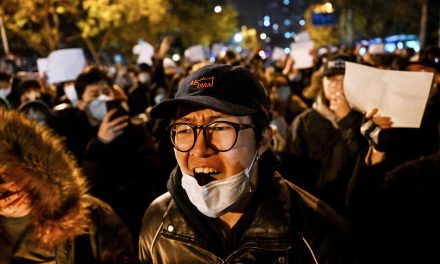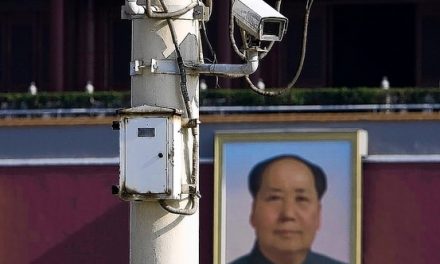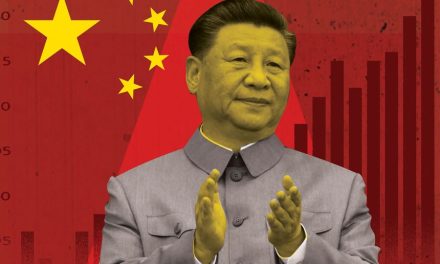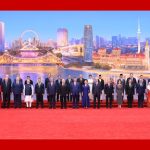By Bin Hai
Jul 18, 2024
Editor’s note (English version): The author documents how, under Xi Jinping, the very ideals of socialist China that he believes in, the rights of workers, are under attack.
Editor’s note (from original Chinese version): The laborers referred to in this article basically referred in the past to migrant workers. After the promulgation of China’s 2018 labor law, there is no longer a legal distinction between migrant workers and formal workers, although workers in state-owned enterprises are still divided into formal and informal workers. Here, informal workers in state-owned enterprises, workers in private enterprises and foreign-invested enterprises are collectively referred to as laborers. Since foreign-funded enterprises have a high degree of compliance with labor laws, the workers involved in the survey of this article do not include workers in wholly foreign-owned enterprises. Since Xi Jinping has stepped up his crackdown on civil society since coming to power, independent labor NGOs have basically disappeared. Therefore, it is more difficult to protect workers’ rights, and reports of violations of workers’ rights themselves are also among the targets of the CCP’s crackdowns. A nationwide independent investigation is basically impossible. The author’s investigation can only be limited to the Pearl River Delta, and he can only use pseudonyms.
Since the introduction of the comprehensive working-hours system in 2018, labor rights have been gradually eroded. The emergence of daily and weekly settlement of labor wages, as well as dispatch workers and outsourcing, circumvent social security, resulting in the loss of workers’ work-related injury benefits, labor protection and other labor rights. It is particularly worth mentioning dispatch workers [somewhat analogous to blue-collar temps], referring to when the employer only signs contracts with companies that dispatch workers, completely ignoring the legal labor rights of those workers. This results in social insurance, labor protections, and wages for such workers greatly falling below minimum standards for the Pearl River Delta.
Even if they receive minimum wage, if workers work 8 hours a day, they can only pay their personal food and clothing expenses. In order to increase their income, they not only cannot turn down overtime, but also must take the initiative to procure it. They work from 12 to 16 hours a day, and there is no time-and-a-half overtime pay. Even so, monthly income is only about four to five thousand yuan, which is barely enough to maintain a very frugal family life. The generally high-intensity labor not only damages the physical and mental health of workers but also worsens the employment environment. Those who are employed do not dare to ask for legally mandated benefits for fear of losing their jobs, given it is more difficult for unemployed people to find a job.
Various domestic channels for speaking out are basically blocked, making it difficult to convey information about the current situation. Short-term work, temporary work, and daily work have corroded the intensity of the conflict between labor and capital. Because the time of individual construction jobs is short, the struggle against various rules and regulations that seriously infringe on labor rights has gradually weakened. However, after a period of time, workers engaged in this kind of short-term work will gradually discover that rules and regulations that harm their own rights are common, but they will have to completely accept them because of their initial weak resistance. In particular, overtime is a serious problem. Because of low wages, you have to work longer hours in exchange for higher income.
The lack of social protection is inseparable from the deteriorating employment and working environment. Taking Shenzhen as an example, the continuous increase in social-insurance fees has caused grassroots workers to lose confidence in their ability to get such protection. In fact, most of the grassroots workers are still migrant workers. Most of them still have to go back to their hometowns when they get older and are not able to enjoy location-specific pension benefits. Once they leave before working for 15 years, the pension contributions paid to the unit will be in vain, and they will get nothing in return. Therefore, not only are employers unwilling to pay into social security, but workers are also less motivated. If you don’t pay pension insurance, you also don’t have insurance against work-related injury, unemployment, medical care and other events. In addition, most of the daily, weekly and dispatch workers do not even pay into social insurance, which puts increasing pressure on the social-insurance fund, and the base premium (the minimum amount of payment into social insurance) has to be gradually increased, forming a vicious circle.
The sense of existential crisis among grassroots workers has increased sharply, and their demands for social security and labor-protection conditions have continued to decline. They have gone from resisting right from the go to having to accept things in order to survive. When the most basic survival guarantees for workers are eroded, it directly leads to a lack of life security after retirement, and workers have to continue to work for a living until they completely lose the ability to do so. From being liberated to being passively turned into labor machines, working for life merely to survive, invisible shackles return the public to the social state of more than 100 years ago.
It is said that with the social progress brought about by the development of science and technology, the living environment of workers should be gradually changed, their income and living standards should be improved, and the working class can also enjoy the benefits of economic development. However, the development trend in recent years is exactly the opposite.
Reports of violations of labor rights or deterioration of working conditions will attract great scrutiny from the government, and individuals reporting on them may even face jail time. Therefore, similar reports, even if they are reported individually on social media, should try to avoid direct conflicts with the government and adopt a more flexible reporting method or a more covert mode. Only by providing as many protective measures as possible to practitioners can the job of reporting on labor conditions survive as long as possible.
I hope more people of conscience will lend a helping hand to the oppressed, exploited and enslaved workers. If the outside world can help grassroots NGOs resume investigative reporting on workers’ conditions, it may greatly help struggles for the protection of workers’ rights, and improve labor conditions, putting them in full accordance with Chinese law.
China, which already ranks second in the world in total GDP, should not repeat the tragic fate of the working class in the early days of capitalist development in the 19th century, especially in socialist China, which currently claims that workers are the leading class.
This piece was translated from Yibao Chinese. If republished, please be sure to add the source and link https://www.yibao.net/?p=247883&preview=true before the text when reposting.
The author’s point of view does not necessarily represent that of this journal.

























